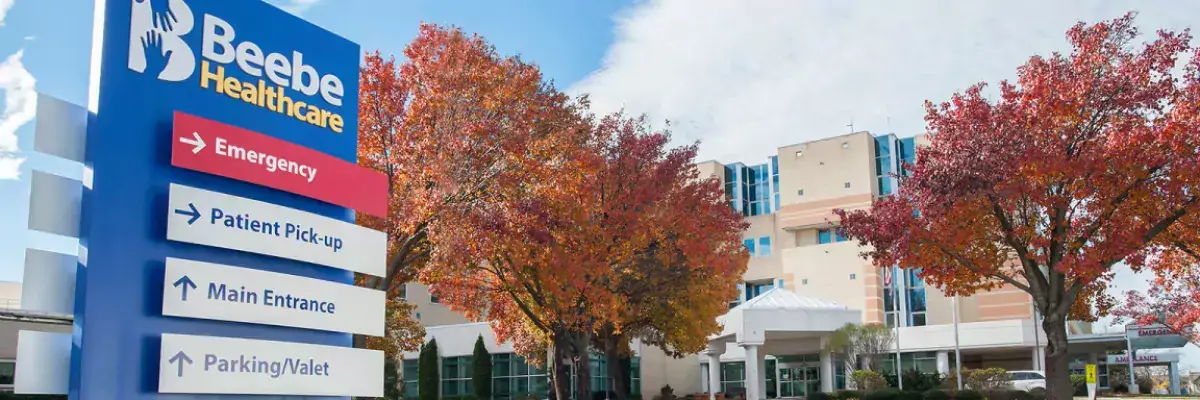Delaware Medical Orders for Scope of Treatment (DMOST)
The Delaware Medical Orders for Scope of Treatment (DMOST) is a set of medical orders indicated on a standardized form. The orders are written by a licensed Medical Provider for their patients who meet certain medical requirements. The orders are to be followed by all medical personnel in any setting and ensure that the patient’s instructions for medical care will be followed when the patient is unable to make medical decisions.
Why would I want a DMOST?
Having a DMOST medical order protects your right to determine the medical care you may or may not want to receive. For patients who qualify, the DMOST form will instruct anyone providing medical care about the life-sustaining treatments you may or may not want to receive when you are unable to speak for yourself. The form also tells your caregivers who you want to make medical decisions for you when you do not have the capacity.
If you are the medical decision-maker for someone who cannot make medical decisions, you can ask for a DMOST order and sign it on the patient's behalf.
What is included in the DMOST form?
The form features these important sections.
- You can record important goals of care to guide your caregivers in their decision-making. For example, if continuing to live at home is a priority, you could include it here.
- The form indicates the kinds of life-sustaining treatment you may or may not want to receive. You can say ‘yes’ or ‘no’ to Cardio-pulmonary Resuscitation (CPR), artificial nutrition, dialysis, and other treatments.
- You can choose if or when you would be willing to go to the hospital or if you want to be kept comfortable where you live.
- The form designates a surrogate decision-maker who will be your advocate if you cannot advocate for yourself.
- You can give permission for your authorized representative permission to make changes to the order or you can choose to say that they may not change or void it.
- The form is valid when signed by you and your medical provider.
Ask your Medical Provider because your Medical Provider determines if you meet certain medical criteria. Generally, if your provider evaluates your overall health and would not be surprised that you had died within six months, a DMOST order can be written. The provider will use the DMOST form to document the mutually agreeable plan of care.
All licensed medical personnel must follow the DMOST. This includes EMTs, nurses, advance practice nurses, physician assistants, and physicians. Always keep a copy of the form with you. If you have a medical emergency, EMTs will look for the bright pink envelope with the form inside. If you go to a walk-in clinic or emergency department for treatment, the staff will ask for a copy of the form.
Yes, patients who no longer have the capacity to make medical decisions can still be protected with a DMOST order. The form allows for an authorized representative (surrogate decision-maker) to sign on the patient’s behalf.
You should keep a copy of the form with you, even when away from home. At home, the form should be inside the designated, bright pink envelope and placed on the refrigerator and/or another place where it is easy for first responders to find. A copy should be given to the person you designate as your authorized representative (surrogate decision-maker), and your primary medical provider.
A copy of the form is also available for reference by licensed medical professionals on a special, state-wide database. If you do not have a copy available, you can ask the medical team to check the database.
Yes, the facility will keep a copy of your DMOST form in your medical records.
Legal requirements vary widely among the states, but the DMOST would still be an important guide for anyone providing your care.
DMOST is a set of medical orders for your current care. It gives direction for the use or withholding of life-sustaining treatments for patients who are near the end of their lives. These orders are to be followed by all medical professionals, including EMTs, nurses, advanced practice nurses, physician assistants, and physicians. The orders “travel” with you in case you cannot make medical decisions in a medical emergency. The DMOST form also identifies the person who makes medical decisions for you when you are unable to make decisions.
An Advance Health Care Directive (AHCDs) provides instructions for your future medical care. It names a representative medical decision-maker and can also name a second representative if the first person is not available. AHCDs indicate the kinds of life-sustaining treatment you may or may not want to receive when your doctor determines that you are at the end of your life. Unlike the DMOST, AHCDs do not require a medical provider’s authorization. Any adult can complete an AHCD at any time to protect the right to make personal medical choices. The AHCD’s instructions regarding life-sustaining treatments at the end of life only go into effect when the representative medical decision-maker directs an Advanced Practice Registered Nurse, Physician Assistant or Physician to follow your instructions. EMTs and other first responders cannot follow the AHCD’s instructions without first receiving a medical provider’s orders. In an emergency or medical crisis, the patient may receive life-sustaining treatments the patient would not want.
You can visit the Delaware Quality of Life Coalition’s web page,. Speak with your medical provider or request a referral to a Palliative Care specialist by calling (302) 645-3150.



